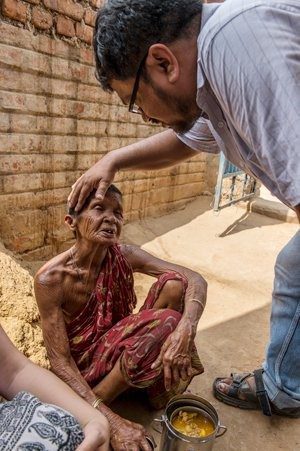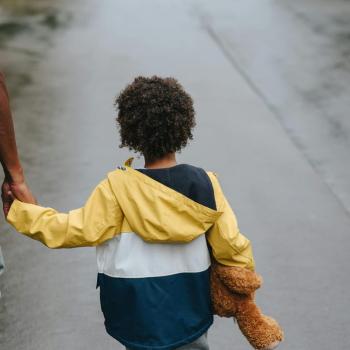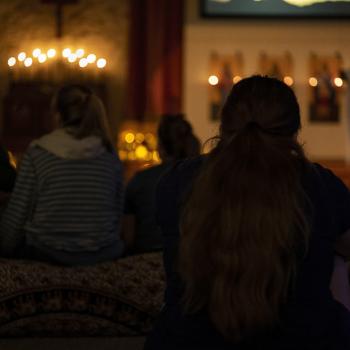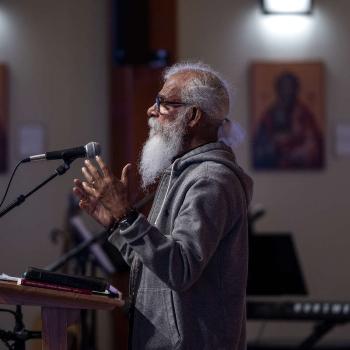“While Jesus was in one of the towns, a man came along who was covered with leprosy. When he saw Jesus, he fell with his face to the ground and begged him, ‘Lord, if you are willing, you can make me clean.’
“Jesus reached out his hand and touched the man. ‘I am willing,’ He said. ‘Be clean!’ And immediately the leprosy left him. ” —Luke 5:12–13 (NIV)
Some things about love and leprosy seem to be diametrically opposed. For several millennia, people with leprosy have been regarded as “unclean,” even in the Levitical law of the Old Testament (see Leviticus 13).
Our natural response to anything characterized as unclean is to avoid it. Even more so, we naturally avoid that which is unsightly to our own eyes, whether it has been labeled “unclean” or not.
If we are willing to be excruciatingly honest with ourselves, we must confess that association with disease, especially if it is disfiguring, is something that we naturally want to avoid and that we may go out of our way to avoid.
This is undoubtedly the case with Jesus’ encounter with the leper described by Dr. Luke.
Why do you suppose that Luke included this account in his record of the Jesus’ ministry?
Because Luke was a doctor? That doesn’t seem likely. Because Matthew and Mark recorded the event (see Matthews 8 and Mark 1)?
Because it was a miracle? When we consider that Jesus healed many people of many diseases and that John said that Jesus did so many more wonders (in just three years!) that it would have been impossible to record them, this, too, seems unlikely. There must be something more.
The leper’s healing demonstrates the power of God revealed in His Son. But Jesus did two other things that even the leper didn’t expect.
He reached out, and He touched him. Jesus could have—actually, He did—healed the leper by willing it to be so. But even before he revealed His power, Jesus showed His love by doing what no one else would even think to do by reaching out and touching him.
The Apostle Paul explained that love “does not dishonor others” (I Corinthians 13:5 NIV). Matthew, Mark and Luke included this critical act because Jesus demonstrated His love as love should be demonstrated. He did not ignore the leper or his disease. He expressed compassion flowing from the same love that would take Him to the Cross for all of us.
There is no record of how old the man was or of how long he had had leprosy. All that we can know for sure is that he had become an outcast because of his disease. People avoided him, but Jesus reached out and touched Him.
Gospel for Asia supports ministry in a part of the world where leprosy remains a curse and people with leprosy are treated as outcasts. Our mission is to share the love of God to all people. If we are to share it, we must first demonstrate it. Just like Jesus did.
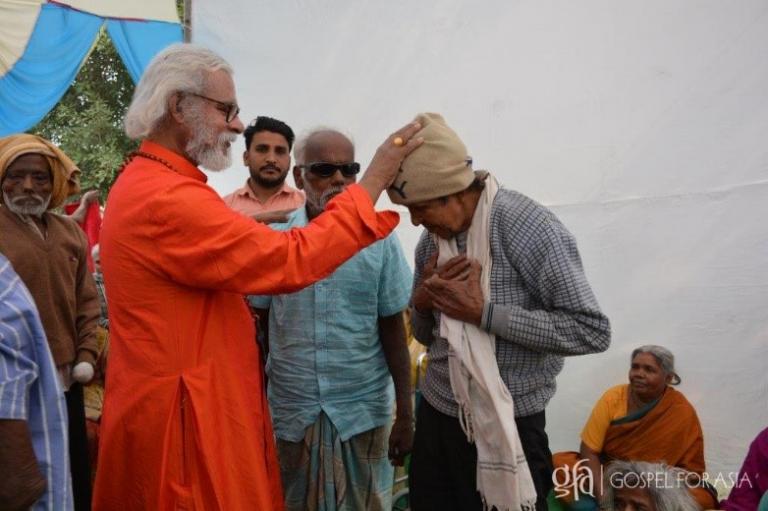
In a recent post, Gospel for Asia (GFA) Founder K.P. Yohannan shared how GFA-supported workers have been caring for people stricken with leprosy across Asia by providing medical and personal care in 44 leper colonies. The story of one of his recent trips to a leper colony includes a photo of brother K.P. reaching out and touching two men in that colony—just as his Lord, Jesus, would have.
Describing the people in the leper colonies as “vulnerable and forgotten,” Dr. Yohannan explained how 500 Gospel for Asia (GFA)-supported Sisters of Compassion minister to leprosy patients by cleaning their wounds, holding their hand, praying for them, and helping to provide food, blankets and other daily needs, including hygiene awareness and education for both adults and children.
January 28, 2018, was World Leprosy Awareness Day. But those who are afflicted with leprosy still have to endure the stigma of the disease on January 29, January 30 and every day that follows.
And every day that follows, they desperately need the love that natural and cultural aversion to their disease can deprive them.
We can’t all go to where these precious people are, but we can pray for those ministering to them, such as the Sisters of Compassion and the Gospel for Asia (GFA)-supported pastors who selflessly share the love of Christ with a group of people who have come to believe that they are unloved and unlovable.
Read more about the loneliness of leprosy.
Read more about how you can bring love and life to people suffering from leprosy.
Read more about how GFA is helping leprosy patients.
Read about K.P. Yohannan’s recent visit to a leper colony.
=====
Click here, to read more blogs on Patheos from Gospel for Asia.
Go here to know more about Gospel for Asia: Twitter | GFA Reports | My GFA


